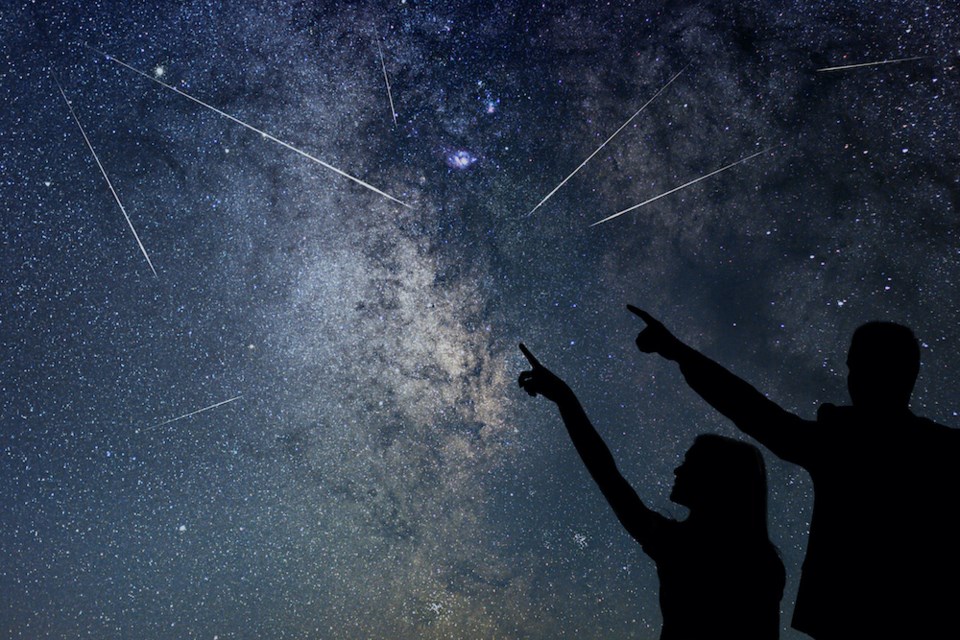If the stars align, the tau Herculids meteor shower could bring a dazzling show to Vancouver skies on Monday, May 30.
Whether it will indeed materialize is unclear, but if it does it will peak right as Vancouver slips into twilight around 10 p.m. according to Marley Leacock, an astronomer at the H.R. MacMillian Space Centre,
“Once the moon sets around 10:50 p.m. it will be easier to see,” she says. “If it is as bright as they are saying, there will be meteors all night.”
So, why the uncertainty? Leacock explains the comet (Schwassmann-Wachmann 3) producing the debris necessary for such a shower hasn’t been easily observed since a 1995 fragmentation event. That makes it hard to estimate the density and positioning of the debris stream that makes for meteors. Without those two key factors it's tough to determine the intensity of a meteor shower.
Nonetheless, astronomers are excited by the clusters of debris they have seen, sparking discussion on the prospect of a meteor storm on par with the legendary 1966 Leonids when thousands of meteors fell per minute. Everything just has to line up just right.
And we won't know if that's happened until, well, it happens.
Andrew Ferreira, with the Royal Astronomical Society of Canada in Vancouver, encourages stargazers to look skyward despite the ambiguity.
“Whether it’s a storm or a trickle it’s always a good time. I’m just glad to see any increased interest in astronomy,” he says.
To find the radiant—that’s where meteors appear to come from—trace an imaginary arc from the handle of the Big Dipper to Arcturus, the first bright star you’ll come to. Any shooting stars will appear halfway between those two points.
Current cloud cover forecasts appear favourably clear for that night, a necessity for observing the event. Leacock recommends staying up to date on the forecast at cleardarksky.com.
“If the weather holds I'll take a peak! It would be very exciting if we got a meteor storm,” she says.
Sky-watchers should opt to travel as far away from city lights as possible in order to avoid light pollution that will obscure the clarity of heavenly bodies. While this works best in more remote places, anywhere that has a higher elevation will also provide more ideal viewing conditions.
With files from Elana Shepert




